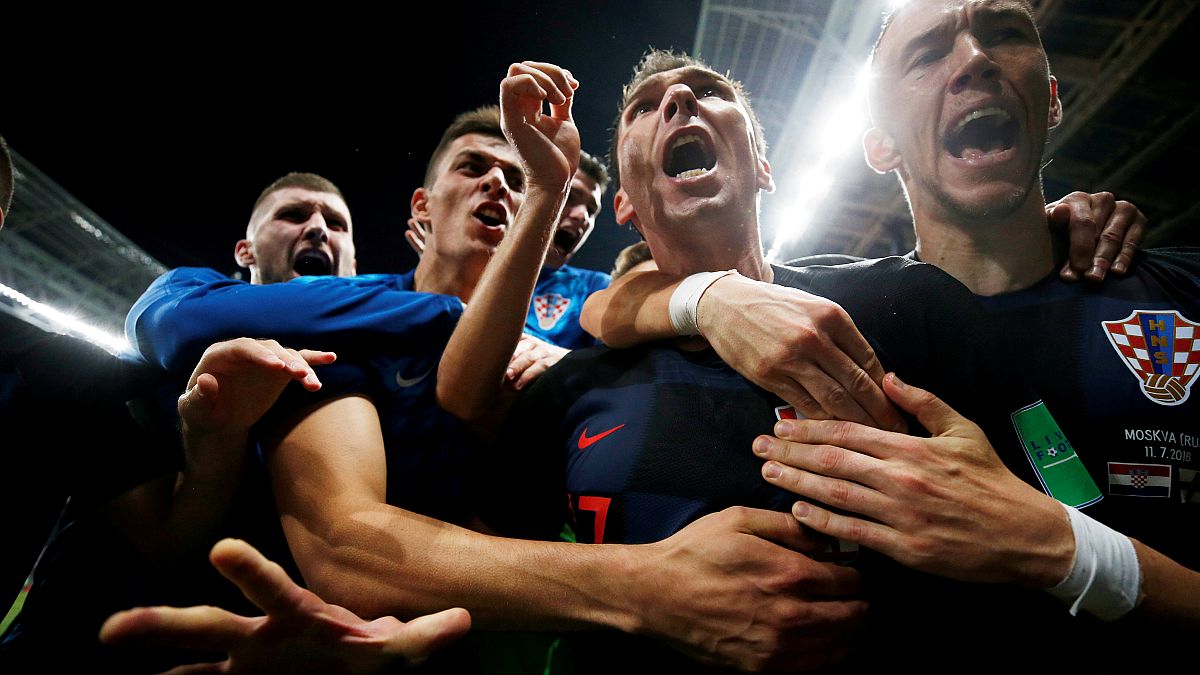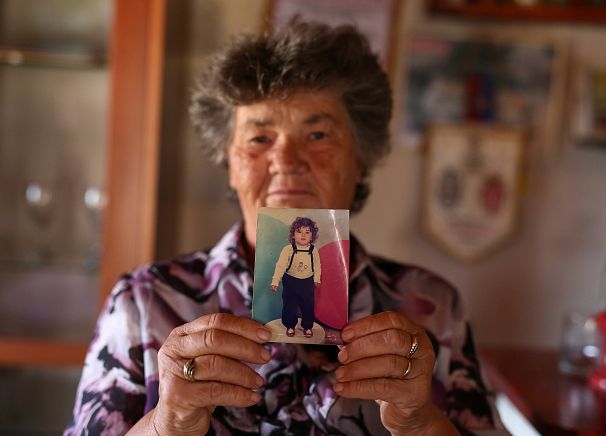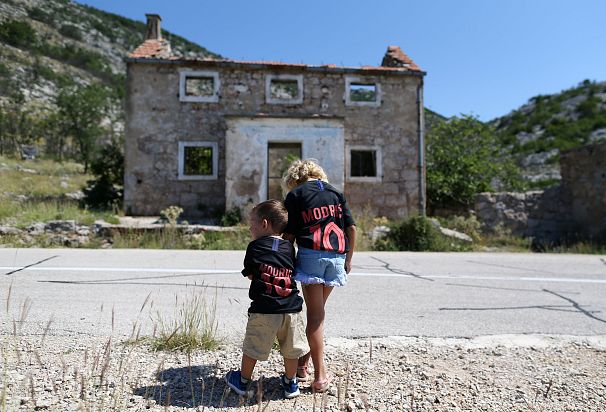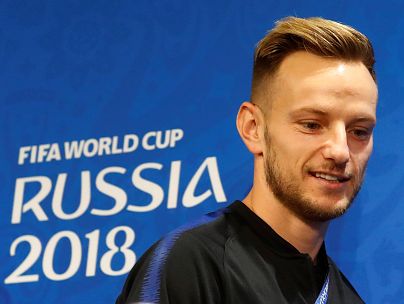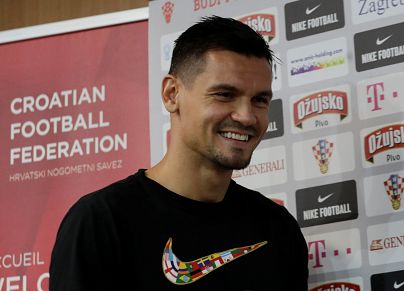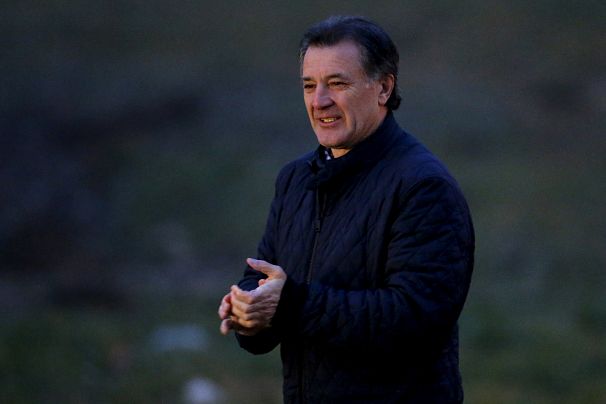Croatia's national team has been able to work together and reach the final despite not always having the easiest past.
With only a few hours to go, the Croatian national team will be playing their first World Cup final against France on Sunday. The team has become a symbol of pride for the tiny Adriatic nation and has surprised the entire world with its strength and optimism.
However, things haven’t always been easy for the Croatian national team. Many of its talented players still carry the scars from the war of independence by Yugoslavia and local Serb forces.
The painful past of Danijel Subasic
Born in Zadar to a Serbian father and a Croatian mother, the goalkeeper was only 11 when his family home was destroyed during the Croatian war of independence in 1995. His Serbian heritage also hasn't made things easy for the goalkeeper as it raises suspicion about his allegiance to Croatia.
Despite this, Subasic joined the Croatian football team NK Zadar in 2003, where he lived the painful experience of losing a close friend and teammate.
In 2008, during a match against another Croatian team, the goalkeeper saw his teammate Hrvoje Custic collide with a concrete wall that led to his death. Ever since then, Subasic has been wearing a t-shirt with a picture of his friend underneath his jersey in every game he plays.
Luka Modric: From refugee to star player
Real Madrid’s ace midfielder also lived through the ravages of the war. During the conflict, a six-year-old Luka Modric and his family were forced to flee their town after their house was destroyed by opposing forces.
Modric and his family fled to Zadar where they lived in a hotel that was converted into a refugee camp for families who had lost their homes in the war. The young prodigy would go to football training while grenades would hit close by and have to take refuge often to not be hit during his practice.
Ivan Rakitic: Between Switzerland and Croatia
Born in Switzerland to Croatian parents, Rakitic chose to play for a nation where he never lived but remained close to his heart.
Of Croatian origin, his parents fled to Switzerland to escape the war former Yugoslavia.
Rakitic grew up in Mohlin near Basel where he would later move to join the city's football team.
The central attacking midfielder played several games with the Swiss U17 and U19 but decided to play at international championships under the Croatian colours.
Dejan Lovren: Living as a refugee in Germany
Croatian defender Dejan Lovren — who comes from a town in Bosnia-Herzegovina — was forced to flee to Germany with his family during the war.
In a documentary with Liverpool’s in-house club TV station LFC TV, Lovren recounted how his life changed in an instant after the war started.
"It just changed through the night," he says. "War between everyone, three different cultures. People just changed. I just remember the sirens went on. I was so scared because I was thinking 'bombs'."
"I remember my mum took me and we went to the basement, I don’t know how long we’d been sitting there, I think it was until the sirens went off. Afterward, I remember mum, my uncle, my uncle’s wife, we took the car and then we were driving to Germany. We left everything – the house, the little shop with the food they had, they left it. They took one bag and ‘let’s go to Germany," Lovren told LFC TV.
However, Lovren's family wasn't allowed to remain in Germany for too long either. After the war ended, their legal permit was taken away and the family was forced to move to Croatia, which was still in a fragile state at the time.
A national team mired in scandals
It has not been easy for the team as a whole either, who have been mired in corruption scandals for years.
The former president of Croatia’s biggest football team Dinamo Zagreb, Zdravko Mamic, was recently sentenced to more than six years in prison for tax evasion and embezzling profits from player transfers.
Croatia’s star player Modric is involved in the scandal after supposedly making contradictory statements in court regarding the matter.
But despite a difficult past, the Croats have undoubtedly given one the best team performances this World Cup has seen, and have not only earned the respect of their country but also of the international football community.
